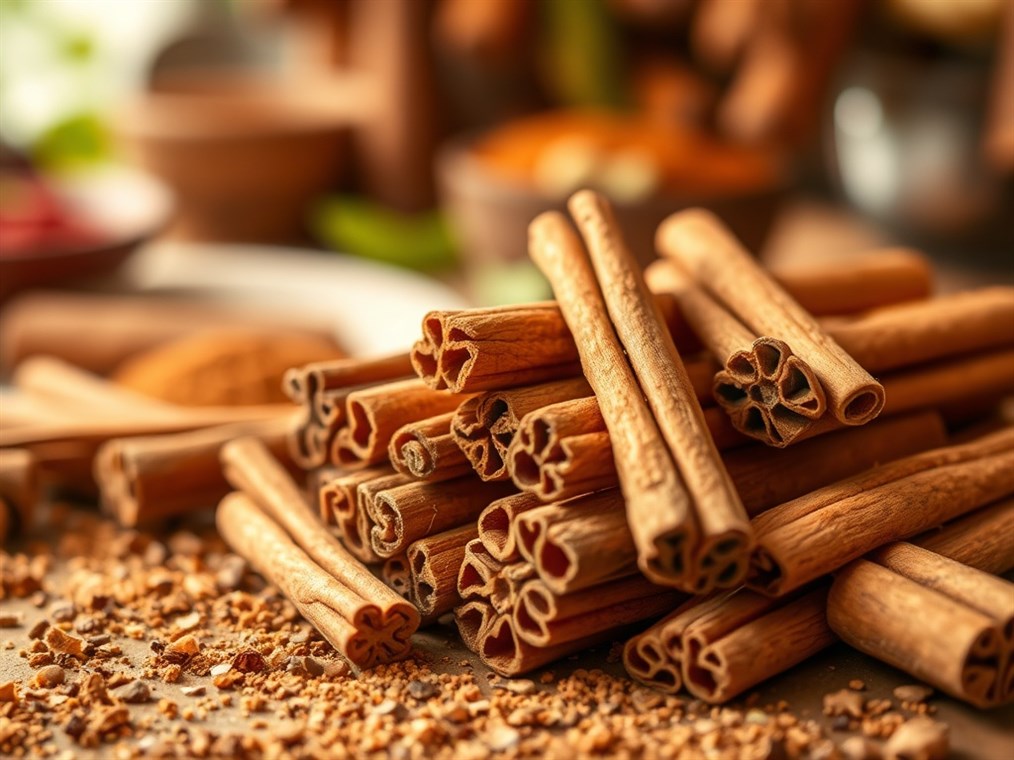Is Organic Cinnamon Really the Same as Ceylon Cinnamon? Let’s Clear Things Up.
Okay, cinnamon lovers, let’s talk! That warm, comforting spice we all adore? It’s not as simple as grabbing just any jar off the shelf. You’ve probably seen “Ceylon” cinnamon and “organic” cinnamon, maybe even wondered if they’re the same thing. Well, spoiler alert: they’re not. Think of it like this: “organic” is about how it’s grown, while “Ceylon” is about what it actually is.
So, what’s the real deal? Basically, there are two main players in the cinnamon game: Ceylon and Cassia. Knowing the difference is key, not just for flavor, but also for your health.
Ceylon vs. Cassia: The Nitty-Gritty
Let’s break it down. Ceylon cinnamon, often called “true cinnamon,” is the delicate, refined cousin. Imagine a subtle sweetness with hints of citrus and flowers – that’s Ceylon. It hails from Sri Lanka and parts of India, and the sticks are like delicate scrolls made of many thin layers, a light tan color.
Cassia, on the other hand, is the bolder, spicier sibling. It’s the stuff most of us grew up with, the kind you find in your grocery store’s baking aisle. Think strong, robust flavor. Cassia comes mainly from China and other parts of Asia. The sticks are thicker, made of one solid layer, and have a reddish-brown hue.
The Coumarin Conundrum: Why It Matters
Here’s where things get a little serious. Both types contain coumarin, a natural compound, but Cassia has way more. Why should you care? Well, too much coumarin can potentially cause liver issues. Ceylon cinnamon contains barely any, a tiny 0.004% or so. Cassia? It can pack up to 1%!
The EFSA (that’s the European Food Safety Authority) says to keep your coumarin intake under 0.1 mg per kg of body weight daily. Now, you’re probably not chowing down on cinnamon sticks all day, but if you are a cinnamon fiend, or you’re giving it to your kids regularly, Ceylon is definitely the safer bet.
“Organic”: What Does It Actually Mean?
Okay, let’s switch gears to “organic.” This label is all about how the cinnamon is grown. Organic cinnamon means no synthetic pesticides, no artificial fertilizers, no GMOs, and no weird additives. Basically, it’s grown the natural way.
So, Is Organic Cinnamon Automatically Ceylon Cinnamon? Nope!
This is the crucial point. “Organic” doesn’t automatically equal “Ceylon.” You can have organic Cassia, and you can have non-organic Ceylon. The organic label just tells you about the growing process, not the type of cinnamon.
The key is to read the label. Look for “Ceylon cinnamon” specifically, or the botanical name Cinnamomum verum. If it just says “cinnamon,” assume it’s Cassia.
Cinnamon’s Good Side: Health Benefits
Okay, enough with the fine print! Let’s talk about the good stuff. Both Ceylon and Cassia cinnamon boast some impressive health perks. We’re talking:
- Blood sugar control: Cinnamon can help your body use insulin better, which is great news for folks with type 2 diabetes.
- Heart health: It might help lower bad cholesterol and triglycerides while boosting the good stuff. Plus, it could even help keep your blood pressure in check.
- Anti-inflammatory power: Cinnamon is packed with antioxidants that fight cell damage and reduce inflammation.
- Germ-fighting abilities: Cinnamon has natural antimicrobial properties that can help ward off bacteria, fungi, and even viruses.
- Brain boost: Some studies suggest cinnamon might protect your brain and improve cognitive function.
- Potential cancer fighter: Early research hints that cinnamon extract could help prevent cancer cell growth.
Choosing Your Cinnamon Adventure: A Quick Guide
So, how do you pick the right cinnamon for you? Here’s a simple guide:
- Daily cinnamon devotee? Go for Ceylon. Its low coumarin content makes it the safer choice for regular, high-dose consumption. Especially important for kids, pregnant women, and anyone with liver concerns.
- Occasional baker? Cassia is perfectly fine for occasional use and provides that strong, classic cinnamon flavor.
- Chasing specific health benefits? Do your research! Some studies have used Cassia, so check the details.
- Baking time? Ceylon shines in delicate desserts where you want a subtle warmth. Cassia is your go-to for bold flavors like cinnamon rolls or gingerbread.
The Final Sprinkle: Know Your Cinnamon!
The bottom line? Organic cinnamon is fantastic, but it doesn’t guarantee you’re getting Ceylon. Always peek at the label to see exactly what you’re buying. Whether you choose Ceylon or Cassia, enjoy the deliciousness and potential health benefits this amazing spice brings to your life. Just be informed, and happy baking!

